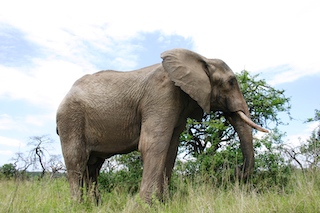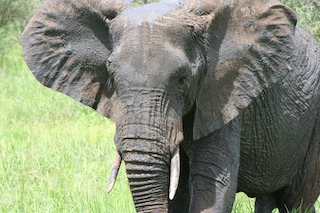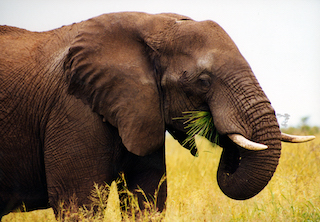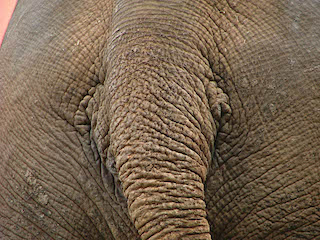Significance Of Elephants In African Culture
Elephants are among the most revered animals in African culture, representing strength, wisdom, loyalty, and deep spiritual significance. These magnificent creatures have played a vital role in the cultural and spiritual life of many African communities for centuries. This leaves an indelible mark on their mythology, rituals, and social practices. Elephants symbolize a wide range of values, from leadership and community to memory and ancestral connection. Their presence in African culture is not just about their physical attributes. It is also about their deep connection to the natural world, their communities, and their enduring legacy.
In this article, we explore the profound significance of elephants in African culture. We will examine their symbolism, spiritual meanings, and the various roles they play in African traditions. We also delve into how this symbolic importance extends to modern African identities. It continues to influence contemporary African art, religion, and storytelling.
1) Elephants in African mythology and folklore
Elephants have long been a staple of African mythology and folklore, where they are often symbols of power and wisdom. African myths tell of the elephant as a majestic, ancient creature. It has the ability to connect humans to the spirit world. In many African tribes, elephants carry with them the wisdom of the ages. Their actions often serve as metaphors for human behaviour and life lessons.
For example, in the Yoruba tradition of West Africa, elephants are symbols of nobility and respect. They are often gods, and their appearance is a powerful sign of protection and divine blessing. Similarly, in the Zulu culture of Southern Africa, elephants are symbols of strength and leadership. They are often ancestral spirits, with the belief that the elephants’ wisdom and their enduring nature connect them to the past. This offers them guidance to present generations.
In African folklore, elephants have deep connections with the themes of family, unity, and community. Their herd structure is led by the eldest and most experienced female. This serves as a model for human social structures, where they respect and rely upon the elderly for their wisdom and leadership. In many African cultures, elders hold an esteemed position within the community, and the elephant’s social hierarchy reflects these values.
2) Elephants as symbols of strength and power
Perhaps the most obvious symbolic role of the elephant in African culture is its representation of strength and power. As the largest land mammal, elephants command respect wherever they go. You can see this physical might in African cultural beliefs, where the elephant is often a symbol of leadership, courage, and the ability to overcome obstacles.
In many African communities, the image of the elephant conveys the strength of the people and the land. For instance, in the Ashanti culture of West Africa, the elephant is a symbol of the king’s authority and his power to rule over his people. The elephant’s large tusks are an emblem of the monarch’s strength, capable of breaking through any challenge or adversary.
In Ghana, the elephant often has military prowess and leadership. The Ghanaian military, for example, uses the elephant as a symbol of their force, courage, and unity. The elephant’s ability to move through even the densest forest without any impediment is like the military’s ability to move with precision and strength through any terrain.
3) Elephants as symbols of wisdom and memory
One of the most profound aspects of elephant symbolism in African culture is the animal’s connection to memory and wisdom. Elephants have exceptional memory and intelligence, particularly their ability to remember past experiences, recognize other elephants, and navigate through vast landscapes using learned pathways. In African culture, they highly value these qualities, and the elephant is a living embodiment of ancient wisdom.
In Nigerian traditions, elephants are often the keepers of history and ancestral knowledge. The wisdom of the elephant, passed down from generation to generation, is a reminder to respect the teachings of elders and to honour the past. Many African societies place a great emphasis on oral tradition, and the elephant’s memory is a symbolic representation of the importance of keeping history alive through storytelling and communal learning.
In many African cultures, the elephant’s memory can provide guidance in times of confusion or doubt. Elders, much like elephants, are the keepers of this collective memory, offering insights and teachings that help guide younger generations through life’s challenges. The elephant’s longevity and wisdom encourage Africans to value the knowledge passed down through the ages, reminding them to respect their ancestors and remain connected to their cultural heritage.
4) Elephants in African spirituality and religion
In African spirituality, elephants have spiritual power and are sacred creatures. Many African tribes believe that elephants hold the ability to connect humans with the divine and the spirit world. In some cultures, the elephant is a spirit animal, a guide that offers protection, wisdom, and strength during challenging times.
In Malian and Senegalese spiritual traditions, elephants are messengers between the living and the spirit world. They have the power to communicate with ancestors and convey divine messages to the living. As a result, they often invoke elephants during spiritual rituals, ceremonies, and prayers, where they are symbols of divine favour and spiritual guidance.
Elephants are also significant in African divination practices. For example, the Dagara people of West Africa believe that elephants have the ability to help people access hidden knowledge or to receive prophetic visions. The elephant’s deep connection to nature and the earth gives it access to hidden realms and unseen forces that can aid individuals in their spiritual growth.
5) Elephants as symbols of family and unity
In African cultures, family and community are fundamental to social life. The social structure of the elephant herd, with its emphasis on cooperation, unity, and leadership, mirrors the values of many African societies. Elephants live in tight-knit family groups, where the eldest female, or matriarch, plays a critical role in guiding the herd. African culture reveres this matriarchal system, where they respect the elders as the wisdom-bearers of the community.
The elephant’s deep sense of family and loyalty is symbolic of the interconnectedness of African communities. Much like the elephant, African societies value the idea of collectivis, the belief that the community’s well-being is more important than individual success. Many African communities prioritise the health and happiness of the family unit, with emphasis on mutual respect and support.
Many African rituals invoke the elephant to bless marriages, births, and other life milestones, symbolising the unity of the family and the bond that holds individuals together. The elephant’s role in African ceremonies often highlights the strength of the family unit and its importance in maintaining cultural traditions and values.
6) Role of elephants in African art and craft
Elephant’s symbolism has deep roots in African art and craftsmanship. From traditional sculptures to paintings, elephants have been depicted in various forms of art throughout African history. In many African cultures, the image of the elephant is used to represent strength, wisdom, and spirituality, making it a popular subject for artists and craftspeople.
In West African cultures, particularly among the Bambara people, elephant figures are often carved from wood and used in rituals or as symbols of power and prestige. These carvings serve as both art and spiritual tools, as they are believed to channel the elephant’s energy and power. Similarly, in the African textile tradition, elephant motifs are often woven into fabrics as symbols of protection, longevity, and prosperity.
In contemporary African art, elephants are often used to explore themes of cultural heritage, nature, and environmental conservation. As modern African artists address issues such as deforestation, poaching, and the protection of endangered species, the elephant has become a symbol of environmental activism and the need to protect Africa’s rich natural heritage.
7) Elephants in African ceremonies and rituals
Elephants also play a prominent role in African ceremonies and rituals, particularly those that involve important life events such as births, marriages, and rites of passage. Their symbolism of strength, wisdom, and protection makes them ideal figures to invoke during these significant occasions.
In some African tribes, the elephant is considered a spirit animal that can bring blessings and good fortune. During ceremonies, elephant figures or carvings are sometimes placed on altars or used as part of sacred rituals. By invoking the elephant, individuals can receive spiritual guidance, protection, and wisdom as they embark on new life journeys.
In certain African healing rituals, the elephant’s connection to the earth and its grounding energy help restore balance and harmony. Shamans and spiritual healers often use elephant imagery or statues as part of their healing practices, believing that the elephant’s presence can provide strength and clarity to those in need.
Enduring symbolism of elephants in African culture
The elephant is far more than just a majestic creature in African culture. It is a symbol of strength, wisdom, protection, and unity. From ancient myths and folklore to modern-day art and rituals, the elephant’s powerful symbolism permeates every aspect of African life. Its revered status as a guide, protector, and leader continues to influence African spirituality, family structures, and cultural values.
Africa continues to face challenges related to environmental conservation. The elephant’s symbolism remains a powerful reminder. There is a need to protect both the natural world and the cultures that hold it dear. The deep connection between the African people and the elephant underscores the importance of wisdom, unity, and respect for the natural world, values that will continue to resonate for generations to come.





